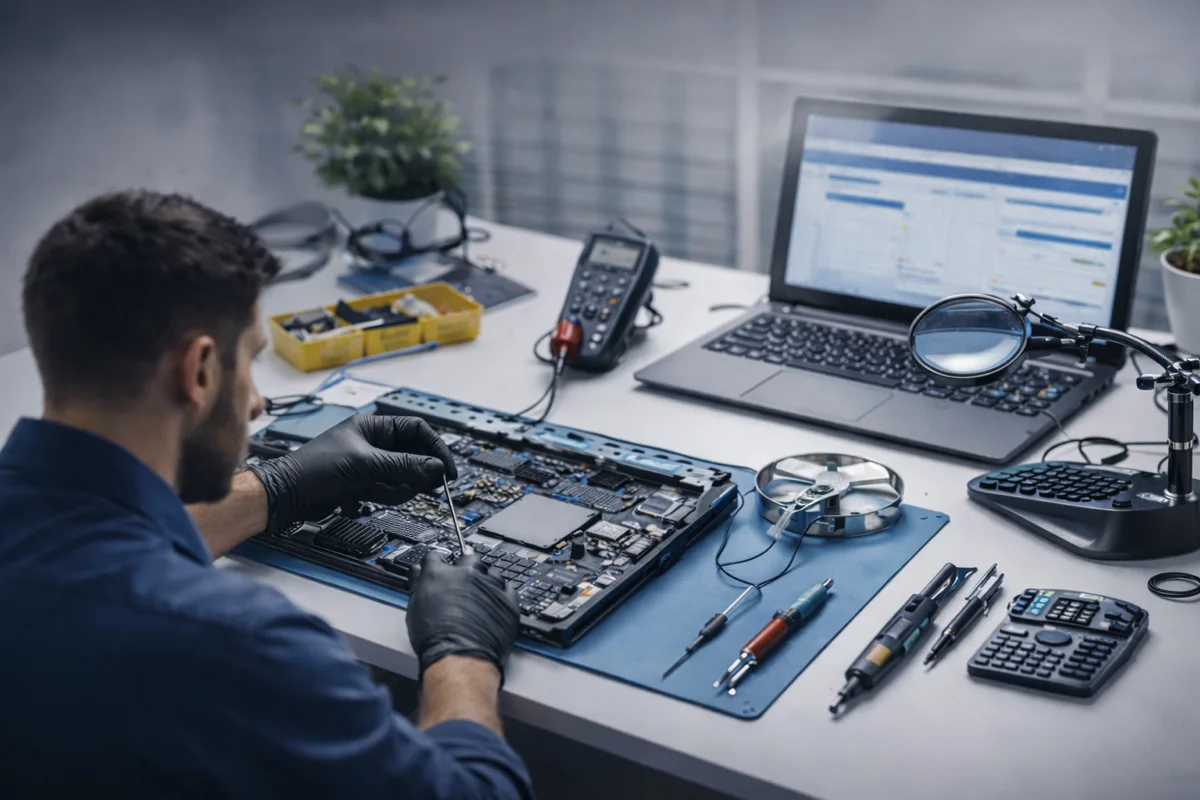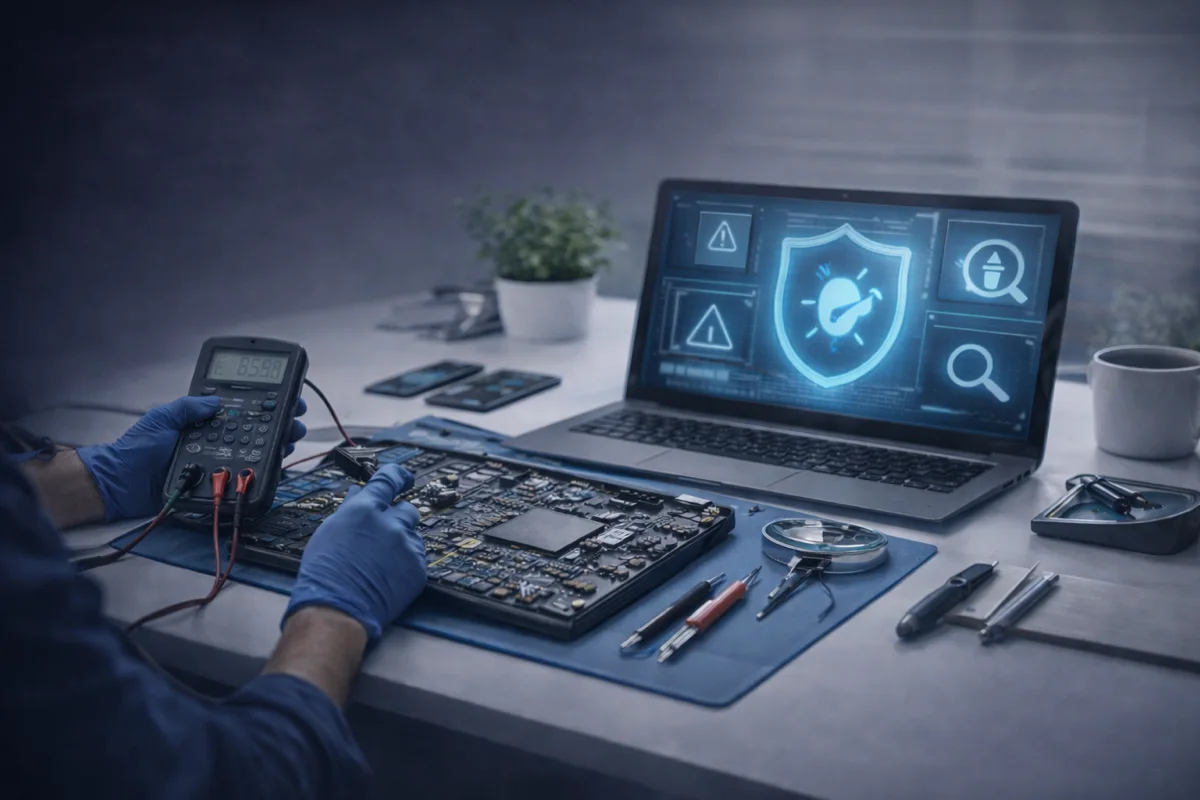
When a laptop starts overheating, slowing down, freezing, or refusing to boot, the big question is: should you repair it or replace it? The right answer depends on a few practical factors: age, repair cost, upgrade potential, and what you actually use your computer for.
Below is a simple, no-BS guide to help you decide—and avoid paying for a “repair” that won’t fix the real problem.
If you want the fastest answer, start with a quick diagnostic. PC & Laptop Repair in Houston can tell you if it’s worth fixing—or if replacement is the smarter move.
Fast rule of thumb: when to repair vs replace
- Repair if the issue is something fixable like a battery, fan/overheating, charging port, screen, storage (SSD), RAM, or malware cleanup.
- Replace if the repair cost is close to the value of the computer, or the system is so old it can’t run modern software reliably.
1) How old is your computer?
Age matters because hardware wears out and new software becomes more demanding. Here’s a general guideline:
- 0–3 years: almost always worth repairing (especially if it’s a good model).
- 4–6 years: depends on the problem and whether upgrades are possible.
- 7+ years: replacement becomes more likely unless it’s a simple fix and you don’t need performance.
2) Symptoms that usually mean “repair” (not replacement)
These problems often look scary, but they’re commonly repairable and can extend the computer’s life:
- Slow performance (often caused by a failing hard drive or too little RAM)
- Overheating (dust buildup, fan failure, dried thermal paste)
- Battery draining fast (battery replacement usually fixes it)
- Storage full / constant “low disk space” (upgrade to a larger SSD)
- Popups, redirects, weird ads (malware cleanup + browser reset)
If overheating is the main issue, you’ll also like: What Should I Do If My Laptop Is Overheating?.
3) Symptoms that usually push toward “replacement”
Some problems can be fixed, but the cost/value doesn’t always make sense—especially on older devices:
- Repeated crashes even after reinstalling the OS and replacing storage
- Major motherboard failure (especially on older laptops)
- Multiple expensive issues at once (ex: screen + battery + storage + keyboard)
- Old system can’t run modern apps even when “fixed” (CPU too weak, limited RAM support)
4) Repair cost vs replacement cost
A simple way to decide is to compare repair cost to what you’d pay for a replacement that meets your needs. A common guideline:
- Repair if: the fix costs under 30–40% of a comparable replacement.
- Consider replacing if: repair cost is 50%+ of replacement cost.
Example: If you can get a solid replacement laptop for $700 and your repair quote is $450, replacement often makes more sense—unless your laptop is higher-end and worth saving.
5) Can you upgrade it instead of replacing it?
Many “slow computer” complaints come down to storage and memory—two upgrades that can dramatically improve performance.
Upgrades that usually make an old computer feel new
- SSD upgrade: biggest speed boost if you’re on an older hard drive.
- RAM upgrade: helps with multitasking and browser tabs.
- Thermal service: reduces heat and throttling (common for overheating).
For other common PC problems, see: Top 10 Common Computer Issues (And What You Can Do About Them).
6) Don’t forget the hidden cost: data loss
If your storage is failing, waiting can make things worse. Even if you plan to replace the computer, you might still need a repair shop to recover files.
Back up first (before it gets worse)
- Use cloud backup (Google Drive / iCloud / OneDrive)
- Use an external drive for important folders
- If the computer is clicking, freezing, or not booting—stop using it and get it checked
Backups matter even more before repairs—here’s a guide: Why Data Backup Matters Before Any Repair.
Repair vs replacement checklist
- ✅ The computer is under ~6 years old
- ✅ The issue is storage/RAM/battery/overheating/malware
- ✅ Repair cost is under ~40% of replacement
- ✅ You don’t need high-end performance for your workflow
If you’re still unsure, the best move is a diagnostic—because guessing usually costs more in the long run.
Need a PC or laptop diagnostic in Houston?
If your computer is slow, overheating, crashing, or won’t boot, MacNDroid can run diagnostics and tell you honestly whether it’s worth repairing—or if replacing is the smarter move.
PC & Laptop RepairGet a PriceCall (346) 808-0948
FAQ
How many years should a laptop last?
Many laptops last 5–8 years depending on quality and maintenance. Upgrades (SSD/RAM) can extend that lifespan.
Is it worth repairing a 10-year-old computer?
Sometimes—if it’s a simple fix and you only use it for basic tasks. But for modern work, replacement is often better value.
Can a slow computer be fixed?
Very often, yes. Common fixes include malware cleanup, SSD upgrades, RAM upgrades, and thermal service for overheating.
What’s the first thing I should do if I think my computer is failing?
Back up important files immediately. If the drive is failing, continuing to use it can make data recovery harder.

